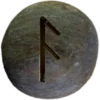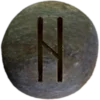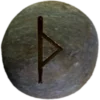Last Updated on June 18, 2025
Table of Contents


The Trickster Giant
Þjazi (pronounced THYAH-zee) appears prominently in Norse mythology as a jötunn, or giant. His name may also be spelled Thiassi or Thjazi in transliterations. He is famous for his shapeshifting abilities and his association with eagles. Þjazi’s most notable story is in the Skáldskaparmál, part of Snorri’s Edda, where he kidnaps the goddess Iðunn, keeper of the apples of youth. ![]()
Disguised as an eagle, he tricks Loki into luring Iðunn out of Asgard. He then snatches her away to his home in Þrymheimr (pronounced THRIM-hay-mer), meaning “Home of Clamor.” Without Iðunn’s apples, the Æsir begin to age rapidly. Desperate, the gods pressure Loki to fix the situation.
Loki borrows Freyja’s falcon cloak, transforms into a falcon, and rescues Iðunn by turning her into a nut. Þjazi, in eagle form, chases them back to Asgard. The Æsir set a fire around Asgard, and Þjazi dies when his eagle wings catch fire.
Þjazi’s death sparks a feud with his daughter, Skaði (pronounced SKAH-thee). Skaði seeks vengeance for her father and confronts the gods. Instead of battle, the Æsir appease her by offering her a husband and making her laugh, leading to her marriage to Njörðr. His story is central to themes of conflict between gods and giants, the theft of valuable treasures, and the interplay of cleverness and brute strength.
Þjazi’s role in Norse mythology highlights his cunning nature and his enduring legacy through Skaði. His story reinforces the idea of balance between divine and natural forces, emphasizing the necessity of unity among the Æsir.
Runes Associated with Þjazi
The Ansuz (ᚨ, pronounced AHN-sooz) rune represents wisdom and cunning, qualities Þjazi exhibits in his plot against the gods. As a master of manipulation, his actions align with the Elder Futhark rune’s association with divine communication and strategy. His cleverness in outwitting Loki and capturing Iðunn showcases the strategic use of intelligence. ![]()
The Hagalaz (ᚺ, pronounced HAH-gah-lahz) rune represents disruption and chaos, mirroring the turmoil caused by Þjazi’s abduction of Iðunn. His actions disrupt the balance in Asgard, creating chaos among the gods. Hagalaz embodies natural, destructive forces, much like the fire that ultimately consumes him. These runes reflect his character and the impact of his actions on the gods and their world.
His Importance to Asatru
Þjazi represents the complex interplay between humanity and nature. He embodies primal forces, both threatening and awe-inspiring. Asatruar value his narrative for its lessons on balance, unity, and resilience. His story reminds modern practitioners of the cost of discord and the necessity of resolution.
His role as a father to Skaði ties him to her enduring significance in Norse beliefs. Skaði’s story underscores his lasting legacy in tales of divine and natural balance. Through Þjazi, Asatruar explore themes of renewal, conflict, and transformation that resonate deeply with their values.


